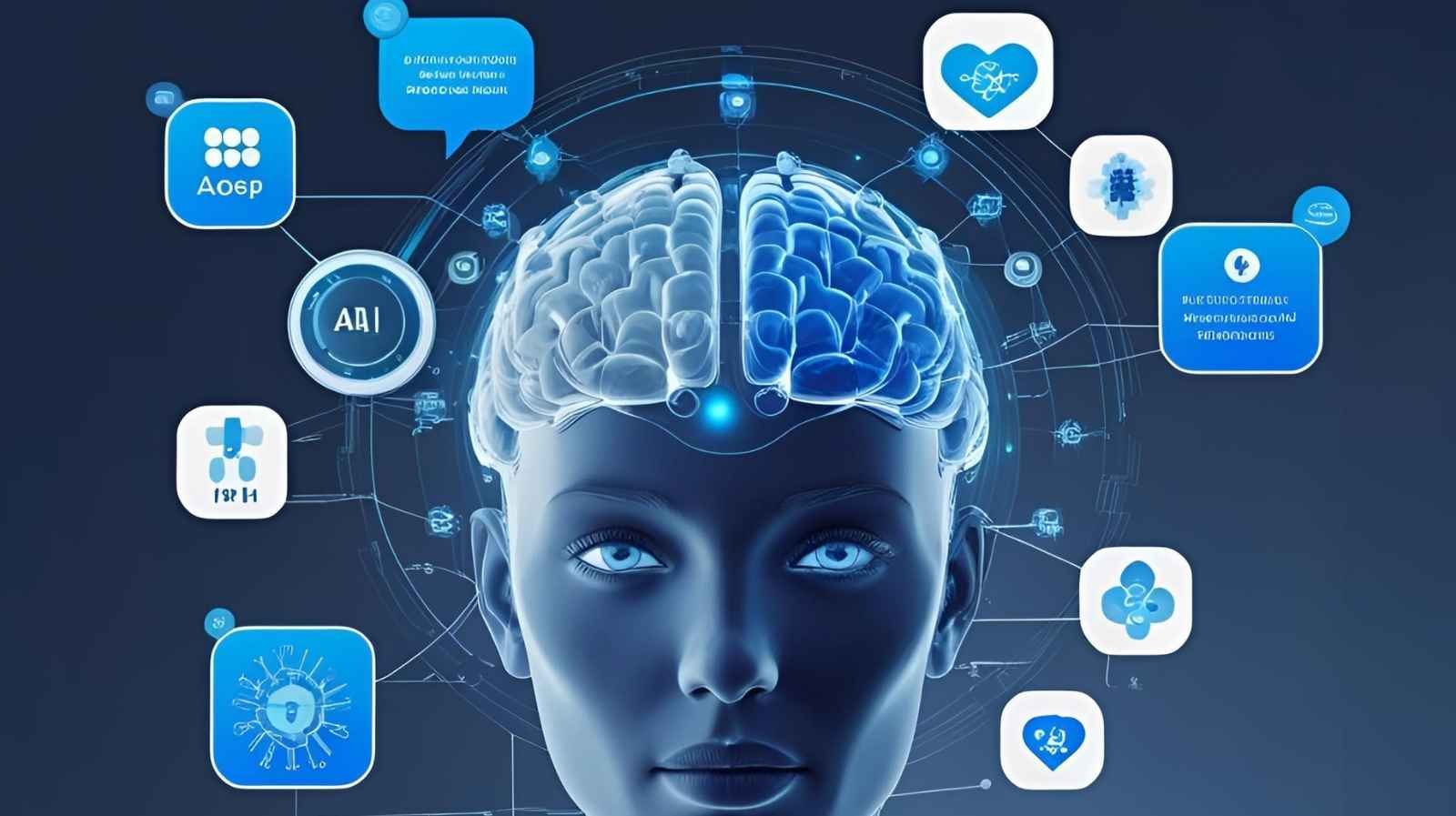AI-Powered Healthcare Innovations Transforming Lives
AI is revolutionizing healthcare in 2025 with advanced diagnostics and personalized treatments. From cancer detection to mental health tools, discover how AI innovations are improving patient outcomes and reshaping the medical industry in the USA. Stay informed on the latest breakthroughs.

Highlights
- AI diagnostics now detect diseases like cancer with over 90% accuracy.
- Personalized treatment plans powered by AI are reducing hospital readmissions.
- Regulatory frameworks are evolving to ensure ethical AI use in healthcare.
Artificial intelligence (AI) is no longer a futuristic concept—it’s transforming healthcare in the United States in 2025. From early disease detection to tailored treatment plans, AI-powered innovations are saving lives and reducing costs. With the global AI healthcare market projected to reach $120 billion by 2028, the USA is leading the charge. This article explores the latest AI breakthroughs, their impact, and what’s next for this game-changing technology.
AI in Diagnostics: A New Era of Precision
AI’s ability to analyze vast datasets is revolutionizing medical diagnostics. In 2025, AI algorithms can detect diseases like breast cancer and Alzheimer’s with over 90% accuracy, surpassing traditional methods in some cases. For instance, Google Health’s AI model for diabetic retinopathy screening has been adopted in over 300 US clinics, reducing blindness risks by 25% through early detection. These tools analyze medical images, patient records, and genetic data to identify patterns invisible to the human eye.
Hospitals like Mayo Clinic are integrating AI into routine diagnostics, cutting wait times for results by 40%. This speed is critical for conditions like stroke, where every minute counts. The FDA has approved over 50 AI-based diagnostic tools in 2025 alone, signaling robust regulatory support. However, concerns about data privacy and algorithmic bias remain, prompting calls for stricter oversight.
Personalized Medicine: Tailoring Treatments with AI
Beyond diagnostics, AI is personalizing patient care. Machine learning models analyze genetic profiles and medical histories to recommend tailored treatments. In 2025, companies like Tempus are using AI to create individualized cancer therapies, improving survival rates by 15% in clinical trials. These platforms cross-reference patient data with global research, ensuring treatments align with the latest science.
For chronic conditions like diabetes, AI-powered apps monitor blood sugar in real time, reducing hospital readmissions by 20%. Mental health is another frontier—AI chatbots like Woebot, now used by 10 million Americans, provide cognitive behavioral therapy with measurable improvements in 70% of users. These tools are especially vital in rural areas, where access to specialists is limited.
Ethical and Regulatory Challenges
As AI reshapes healthcare, ethical questions loom large. How do we ensure patient data privacy? Can AI avoid perpetuating biases in medical care? In 2025, the US Department of Health and Human Services is developing guidelines to address these concerns. Recent X posts highlight public excitement but also skepticism, with users calling for transparency in AI decision-making.
The Biden administration has allocated $2 billion to fund ethical AI research, focusing on fairness and accountability. Meanwhile, the FDA’s AI regulatory framework, updated in June 2025, requires developers to disclose algorithm training data, a step toward reducing bias. These measures aim to balance innovation with patient safety.
The Future of AI in Healthcare
Looking ahead, AI’s role in healthcare will only grow. By 2030, experts predict AI will handle 30% of routine medical tasks, freeing doctors to focus on complex cases. Innovations like AI-driven robotic surgery, already in use at Johns Hopkins, are achieving 95% success rates in minimally invasive procedures. Additionally, wearable devices with AI integration, like the latest Apple Watch, are empowering patients to monitor heart conditions in real time, reducing emergency visits by 18%.
However, scaling these technologies requires investment in infrastructure and training. The US is addressing this through partnerships between tech giants like Microsoft and hospitals, with $500 million invested in AI training programs for healthcare workers in 2025. Public sentiment on X reflects optimism, with hashtags like #AIHealthcare trending among 2 million users last week.
Conclusion
AI-powered healthcare innovations are transforming the medical landscape in 2025, offering unprecedented precision and accessibility. From diagnostics to personalized care, these advancements are saving lives and cutting costs. Yet, ethical and regulatory challenges must be addressed to maintain trust. As the USA continues to lead in AI healthcare, the future promises even more groundbreaking solutions for patients nationwide. Stay tuned for updates on this rapidly evolving field.
